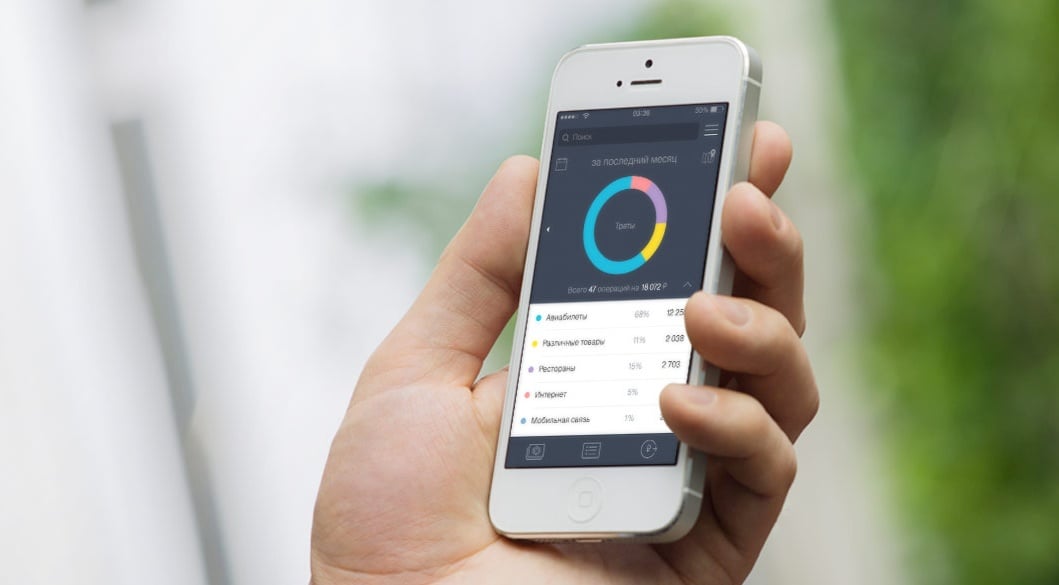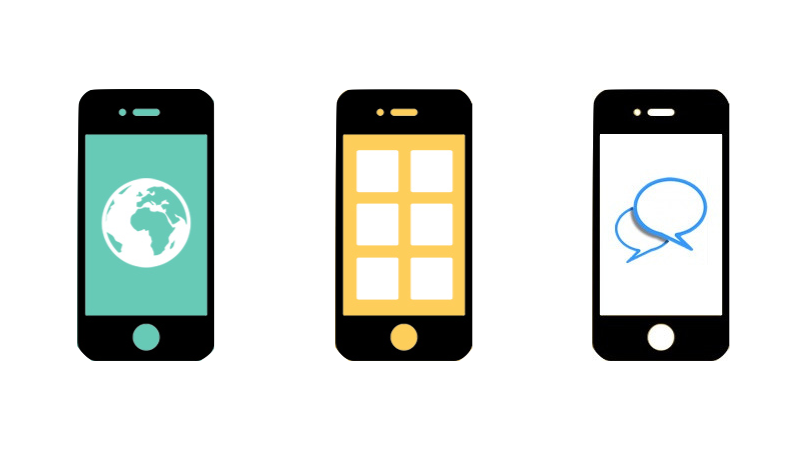

A website is your 24x7 marketing face and so is a mobile application. These two are the essential aspect of every business that is slowly but gradually taking over the world. In this organized world, the success of a business is now easy to gain with the help of online interaction and purchasing experience of users. The fact is that website already have made an impact on the business world but mobile application are now moving towards that direction.Due to this shift in the market, companies are coming up with new strategies for mobile applications. The only question that is still unanswered is which one is better – mobile website or native application.
There are thousands of argument on this single question. And as a fact, there are countless benefits of both that is also making the decision tad tough. To make it easy for you here is everything that you need to know about both before deciding on the best way to move forward.
The Stats
In 2015, it was reported that the total gross income that was generated by mobile applications on the annual level is approximately $42 billion. It is stated that by 2021, the stats will increase by $52 billion which will make the total worth reach to the maximum of $190 billion.
The demand of customers is rapidly increasing for mobile applications. On top of that, the usage of the desktop is decreasing at a fast rate due to the mobile application. Even Google accepted that mobile searches are more than desktop. Hence, now it is clear that mobile is more hyped than any other searching method.
The Difference
If we see the states, then one thing will pop into your mind, mobile websites and applications are both used in a smartphone then what will you do? Let us be clear, a Mobile website is the plain website only that have HTML browser pages bind together. On top of that, there are responsive websites as well that are used for multiple platforms as per layouts and sizes.
Similar to a website, you will be able to find data, content, video and image on the mobile website. In addition, it is possible to get access to mobile features such as mapping location, click-to-call and so on. On the other hand, native mobile applications are actually downloaded from the Play Store so that you can install and use it. The thing is that in an application, it is possible to pick up the content from the website and place it on it. If you have downloaded the content, then you can easily check it out without any requirement of the internet.
Mobile website
Now, you have a clear idea about what mobile website actually is. It can be easily designed with the help of responsive website feature. This allows one single website to be opened up as per the layout and size with no constraints or change in content. You can consider it as a regular website but in a more customized manner.
Advantages of mobile websites
- Audience Reach –As mentioned above, customers prefer mobile search more than desktop search. This makes a website in the vicinity of the customers that can be easily accessed or shared. Additionally, it has a capability to reach to the maximum audience that that can download it with a simple search on App store.
- Brand Visibility and SEO –A business owner understands the true value of SEO and brand visibility. Google shows the pages which are mobile optimized at the top than other pages. Hence, companies are coming up with user-friendly websites to ensure that they reach the higher platform.
- Cost-effective – This aspect actually depends on the complexity of a website. The more complex a site it, the more cost it will require for responsive sites. Keep in mind that budget can go more than a mobile application.
You can consider it as less cost-effective but it will depend on the engagement or personalization.
Native mobile apps
This is the widely used platform for the development of mobile application especially in the case of Android and iOS. The native language is the one that is extremely essential for the operating system that can separate any website with the application of the same company.
Advantages of mobile apps
- Branding Prospect – You can say that the website and application are two different entity which is also mentioned above. The application gives a chance to deeply explore your styles and tactics to reach the heart of customers. Even user experience will be different from each other that will add value to your brand name.
- Device Capabilities –There isa number of hardware and device features that can be accessed with the help of the native application. For instance, click-to-call, GPS system, and even a camera or photo. Then there are additional features such as push notification, automatic updates, etc. which is not possible in any other way.
- Customization – It is all about location, internet, usage, etc. in a well-tailored manner. You can even include your preference for a certain product or service that can be given much preference. This helps in monitoring users experience and intensifying it with regular updates and recommendations.
- Brand Presence – The best advantage of the mobile application is that it will be on your user’s phone 24x7 until they decide to uninstall it. This will be as a constant reminder for them that your brand is present and they are free to put it in use. Also, when something is right in front of a customer then the probability to put it into use is higher than searching it and using.
- Customer Engagement –With the help of the environment of the mobile application, the customers have become more engaged with services. Whether it is a finance related application or e-commerce application, it has managed to reach their goals. Also, they are more interactive and easy to use that made buyer run for them.
- Offline Access – There are applications that don’t require an internet connection. They can be used without any connection, however, it is possible that few of the features will be limited. But, this has certainly made it easy for a customer to reach out for the application.
The main purpose of the native application is that they work for the user experience and not on replicating website. In turns, this made it smooth and seamless to perform different operation easily with or without internet. Also, it generously increases brand consistency.
Which is better
Irrespective of the advantages of a mobile website or native application, the main aim is to reach the user and increase revenue. Hence, the answer of which is better actually depends on the objective of your business and what it aims for. In both the scenario, you will require quality-content and accessibility that can made user experience as smooth as possible. It must work on the enhancement of customer experience and interaction of the customer with business.
If we talk in terms of value and strategy, both of them have its own importance if we proceed it correctly. It will improve your brand image in the market. If luck is on your side, then you can, in fact, try out both pronged approach at the same time.
Need help with a responsive website or mobile app? Get in touch.

Which KPIs should you track for your mobile apps?
In the eternal quest for growth and superiority, you will come over multiple KPIs directed on making your app quicker, better, and powerful....

7 common issues to avoid when building a mobile app
Numerous organizations on their first attempt at applications wrongly release applications with ineffectively done backends that can't sustain even...



